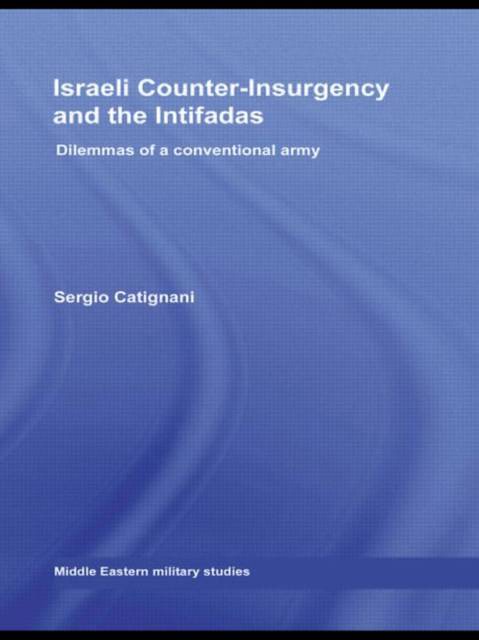
- Retrait gratuit dans votre magasin Club
- 7.000.000 titres dans notre catalogue
- Payer en toute sécurité
- Toujours un magasin près de chez vous
- Retrait gratuit dans votre magasin Club
- 7.000.0000 titres dans notre catalogue
- Payer en toute sécurité
- Toujours un magasin près de chez vous
Description
This volume analyzes the conduct of the Israel Defence Forces' (IDF) counter-insurgency operations during the two major Palestinian uprisings (1987-1993 and 2000-2005) in the Territories of the West Bank and Gaza Strip.
It employs primary and secondary resources to produce a comprehensive analysis on whether or not the IDF has been able to adapt its conventional conduct of warfare to the realities of the Israeli-Palestinian low-intensity conflict and achieve any sort of victory over the Palestinian insurgents. Sergio Catignani provides new insights into how conventional armies struggle with contemporary insurgency by looking in particular at the strategic, operational, tactical and ethical dilemmas of the IDF over the last two decades. By examining the way in which the IDF and the Israeli security doctrine were formed and developed over time, he explores the extent to which Israeli security assumptions, civil-military relations, the organizational culture, command and control structure, and conduct of the IDF have affected its adaptation to the contemporary Israeli-Palestinian low-intensity conflict.
Israeli Counter-Insurgency and the Intifadas will be of much interest to students of low-intensity conflict and counter-insurgency, the Israeli army, the Middle Eastern conflict and strategic studies in general.
Spécifications
Parties prenantes
- Auteur(s) :
- Editeur:
Contenu
- Nombre de pages :
- 260
- Langue:
- Anglais
- Collection :
Caractéristiques
- EAN:
- 9780415570121
- Date de parution :
- 27-11-09
- Format:
- Livre broché
- Format numérique:
- Trade paperback (VS)
- Dimensions :
- 156 mm x 234 mm
- Poids :
- 367 g

Les avis
Nous publions uniquement les avis qui respectent les conditions requises. Consultez nos conditions pour les avis.






